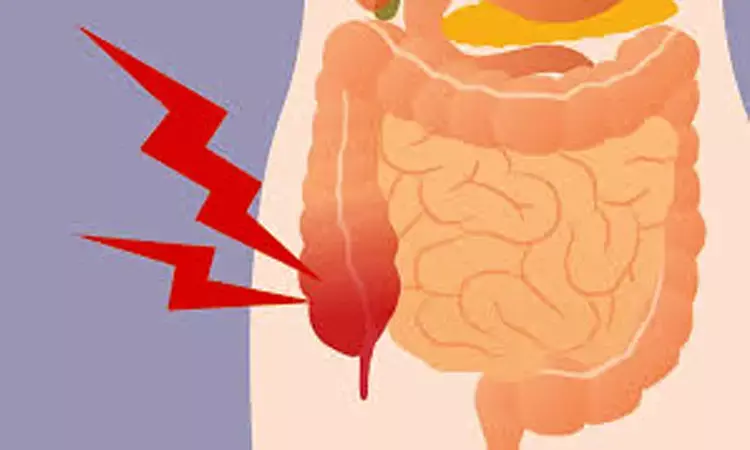- Home
- Medical news & Guidelines
- Anesthesiology
- Cardiology and CTVS
- Critical Care
- Dentistry
- Dermatology
- Diabetes and Endocrinology
- ENT
- Gastroenterology
- Medicine
- Nephrology
- Neurology
- Obstretics-Gynaecology
- Oncology
- Ophthalmology
- Orthopaedics
- Pediatrics-Neonatology
- Psychiatry
- Pulmonology
- Radiology
- Surgery
- Urology
- Laboratory Medicine
- Diet
- Nursing
- Paramedical
- Physiotherapy
- Health news
- Fact Check
- Bone Health Fact Check
- Brain Health Fact Check
- Cancer Related Fact Check
- Child Care Fact Check
- Dental and oral health fact check
- Diabetes and metabolic health fact check
- Diet and Nutrition Fact Check
- Eye and ENT Care Fact Check
- Fitness fact check
- Gut health fact check
- Heart health fact check
- Kidney health fact check
- Medical education fact check
- Men's health fact check
- Respiratory fact check
- Skin and hair care fact check
- Vaccine and Immunization fact check
- Women's health fact check
- AYUSH
- State News
- Andaman and Nicobar Islands
- Andhra Pradesh
- Arunachal Pradesh
- Assam
- Bihar
- Chandigarh
- Chattisgarh
- Dadra and Nagar Haveli
- Daman and Diu
- Delhi
- Goa
- Gujarat
- Haryana
- Himachal Pradesh
- Jammu & Kashmir
- Jharkhand
- Karnataka
- Kerala
- Ladakh
- Lakshadweep
- Madhya Pradesh
- Maharashtra
- Manipur
- Meghalaya
- Mizoram
- Nagaland
- Odisha
- Puducherry
- Punjab
- Rajasthan
- Sikkim
- Tamil Nadu
- Telangana
- Tripura
- Uttar Pradesh
- Uttrakhand
- West Bengal
- Medical Education
- Industry
Doctors can use CT scans with less radiation to diagnose appendicitis

A new paper in the British Journal of Surgery, published by Oxford University Press, indicates it's now possible to diagnose appendicitis using low-does CT scans, decreasing the radiation exposure, which is of significant clinical importance especially in young patients.
Appendicitis is one of the most common causes of hospital admissions and appendicectomies are some of the most common surgical procedures performed worldwide. It can be difficult to diagnose appendicitis, however. Such difficulties may delay or lead to unnecessary surgeries. Contrast-enhanced computed tomography (CT) scans are very useful in helping doctors to make the correct diagnosis but there are concerns about radiation exposure.
The increasing evidence on the safety and efficacy non-operative treatment for uncomplicated acute appendicitis has set new demands for the accuracy of diagnostics in both acute appendicitis and appendicitis severity. As an emergency appendicectomy is no longer considered the only treatment alternative for patients with uncomplicated acute appendicitis, the emphasis has shifted from solely assessing whether a patient has appendicitis or not toward differentiating between uncomplicated and complicated acute appendicitis.
Imaging has become standard in appendicitis diagnosis, reducing both the negative appendicectomy rate and overall treatment costs. Although an ultrasound is often used in the paediatric population to avoid the dangers of radiation, a CT scan is the most accurate way to diagnose appendicitis in adults.
Researchers here studied patients treated between April 4, 2017 and November 27, 2018 at Turku University Hospital, Finland. The hospital admitted a total of 989 patients to the emergency room with suspected acute appendicitis. Some 53% per cent underwent low-dose CT scans and 47% were diagnosed with standard-dose CT scans. Researchers found the overall accuracy of low-dose and standard-dose CT scans in identifying patients with and without acute appendicitis was 98% and 98.5% respectively. The accuracy for differentiating between uncomplicated and complicated acute appendicitis using the different types of CT scans was 90.3% and 87.6% respectively.
This study shows that low-dose and standard-dose CT scans were accurate both in identifying appendicitis and in differentiating between serious cases requiring surgery and those that can be treated with antibiotics alone.
"The results of this study suggest that the diagnostic CT scan radiation dose can be significantly decreased without impairing diagnostic accuracy, said the paper's lead author, Paulina Salminen. "These findings will hopefully encourage physicians to implement low-dose CT modalities at emergency departments for acute appendicitis imaging to avoid unnecessary radiation in this very large patient population."
https://academic.oup.com/bjs/advance-article-abstract/doi/10.1093/bjs/znab383/6421480?redirectedFrom=fulltext
Hina Zahid Joined Medical Dialogue in 2017 with a passion to work as a Reporter. She coordinates with various national and international journals and association and covers all the stories related to Medical guidelines, Medical Journals, rare medical surgeries as well as all the updates in the medical field. Email: editorial@medicaldialogues.in. Contact no. 011-43720751
Dr Kamal Kant Kohli-MBBS, DTCD- a chest specialist with more than 30 years of practice and a flair for writing clinical articles, Dr Kamal Kant Kohli joined Medical Dialogues as a Chief Editor of Medical News. Besides writing articles, as an editor, he proofreads and verifies all the medical content published on Medical Dialogues including those coming from journals, studies,medical conferences,guidelines etc. Email: drkohli@medicaldialogues.in. Contact no. 011-43720751


